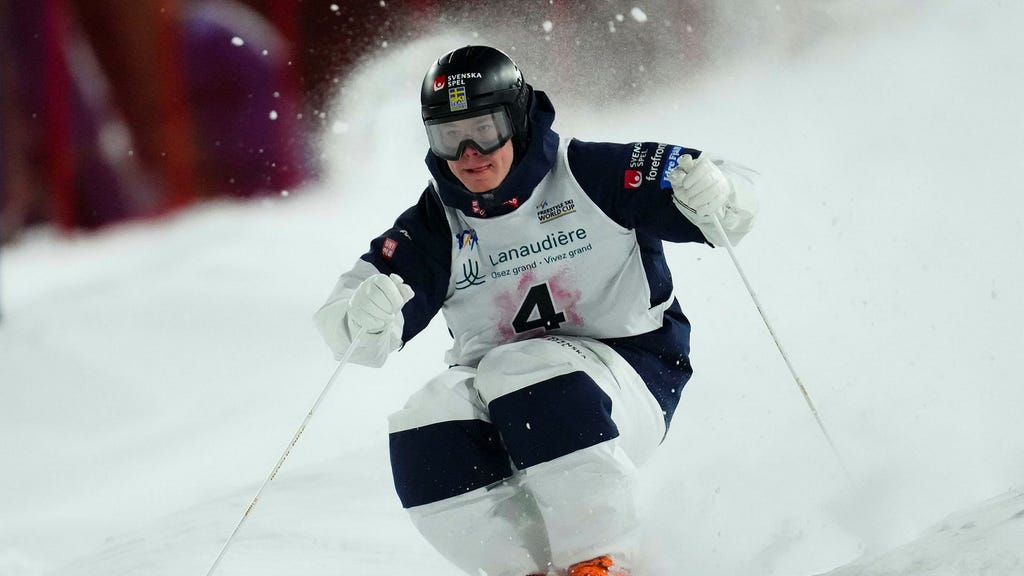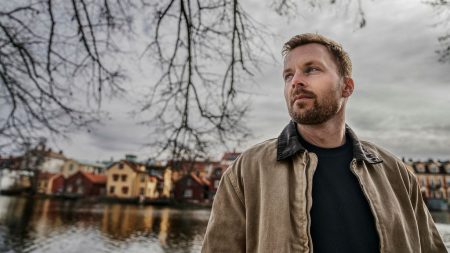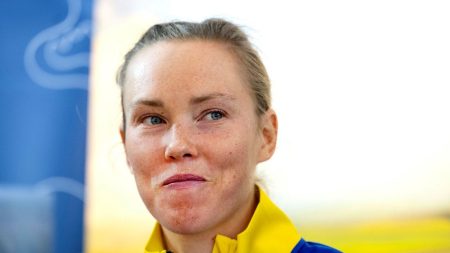Walter Wallberg, the 24-year-old Swedish freestyle skier, etched his name into the annals of the 2022-2023 FIS Freestyle Ski World Cup by claiming victory in the season’s inaugural parallel moguls event held in Bakuriani, Georgia. His triumph, marked by a broad, triumphant smile, underscored the culmination of a grueling competition and a testament to his unwavering dedication. Battling not only the challenging Georgian slopes but also a recent bout of illness and the effects of high altitude, Wallberg displayed remarkable resilience and determination en route to the gold medal. His journey to the top of the podium was paved with victories against fellow countrymen, highlighting the depth of talent within the Swedish moguls skiing team. The Bakuriani event, initially slated to take place in Idre Fjäll, Sweden, two weeks prior, was rescheduled due to adverse weather conditions, further amplifying the significance of Wallberg’s victory in the delayed season opener.
Wallberg’s path to gold was marked by a series of hard-fought battles against formidable opponents, including several of his own teammates. The quarter-final stage saw him pitted against fellow Swede Rasmus Stegfeldt, whom he managed to overcome. The semi-final presented an even greater challenge in the form of Filip Gravenfors, another Swedish skiing prodigy. In a nail-biting duel, Wallberg edged out Gravenfors by the slimmest of margins, securing his place in the final. This string of victories against his compatriots not only underscored Wallberg’s individual prowess but also highlighted the strength and depth of the Swedish moguls skiing team on the world stage. The final showdown saw Wallberg pitted against French skier Benjamin Cavet. Despite the fatigue accumulated from previous runs and the lingering effects of his recent illness, Wallberg dug deep, drawing on his rigorous summer training regime, which focused on high-intensity interval training with short recovery periods. This preparation proved invaluable, enabling him to maintain his speed and precision throughout the demanding course and ultimately secure the victory against Cavet.
The victory in Bakuriani carried a special significance for Wallberg, as it served as a resounding affirmation of his summer-long preparations. He acknowledged the physical toll the competition had taken, admitting to feeling completely drained and breathless. The challenging conditions, compounded by his recent illness and the effects of high altitude, made the victory even more remarkable. He attributed his success to the rigorous training regimen he had undertaken throughout the summer months, emphasizing the importance of the intense interval workouts and short recovery periods in preparing him for the demanding physicality of the competition. These focused training sessions had clearly paid dividends, allowing him to maintain his form and energy levels despite the challenging circumstances.
Filip Gravenfors, despite falling short against Wallberg in the semifinals, showcased his own considerable talent by claiming the bronze medal. His journey to the podium included a notable victory against Canadian moguls skiing superstar Mikaël Kingsbury in the quarterfinals, a testament to Gravenfors’s rising prominence in the sport. He then secured the third-place finish by defeating Japanese skier Ikuma Horishima in the small final. Gravenfors’s performance, along with Wallberg’s gold, solidified Sweden’s position as a dominant force in moguls skiing. The Swedish team’s strong showing at the season’s opening event signaled their intent to make a significant impact on the World Cup circuit.
On the women’s side, Jaelin Kauf of the United States emerged victorious, adding to the excitement of the day’s competition. Her win underscored the global nature of the sport and the high level of competition across the board. The Bakuriani event provided a thrilling start to the World Cup season, setting the stage for an exciting and competitive year of moguls skiing. The success of athletes from different nations highlighted the international appeal and the growing depth of talent within the sport.
The rescheduling of the event from Idre Fjäll to Bakuriani due to persistent fog added an unexpected layer of complexity to the competition. The change of venue meant that athletes had to adapt to a different course and environment, further testing their adaptability and resilience. The eventual success of Wallberg and Gravenfors, despite these unforeseen circumstances, served as a testament to their mental fortitude and ability to perform under pressure. The Bakuriani competition, though delayed, ultimately delivered a thrilling spectacle, setting the tone for what promises to be a captivating World Cup season. The impressive performances of the athletes, coupled with the dramatic backdrop of the Georgian mountains, created a memorable start to the year’s competitive calendar.














